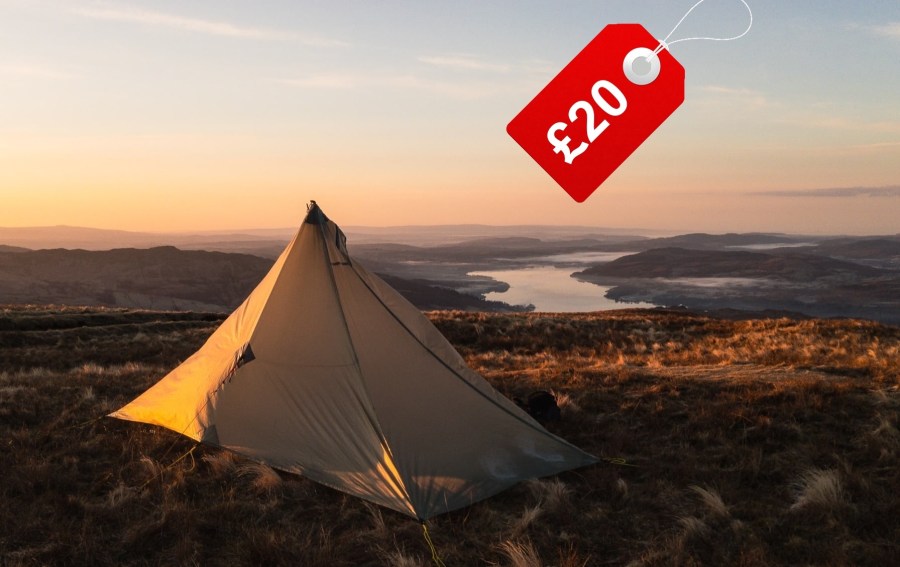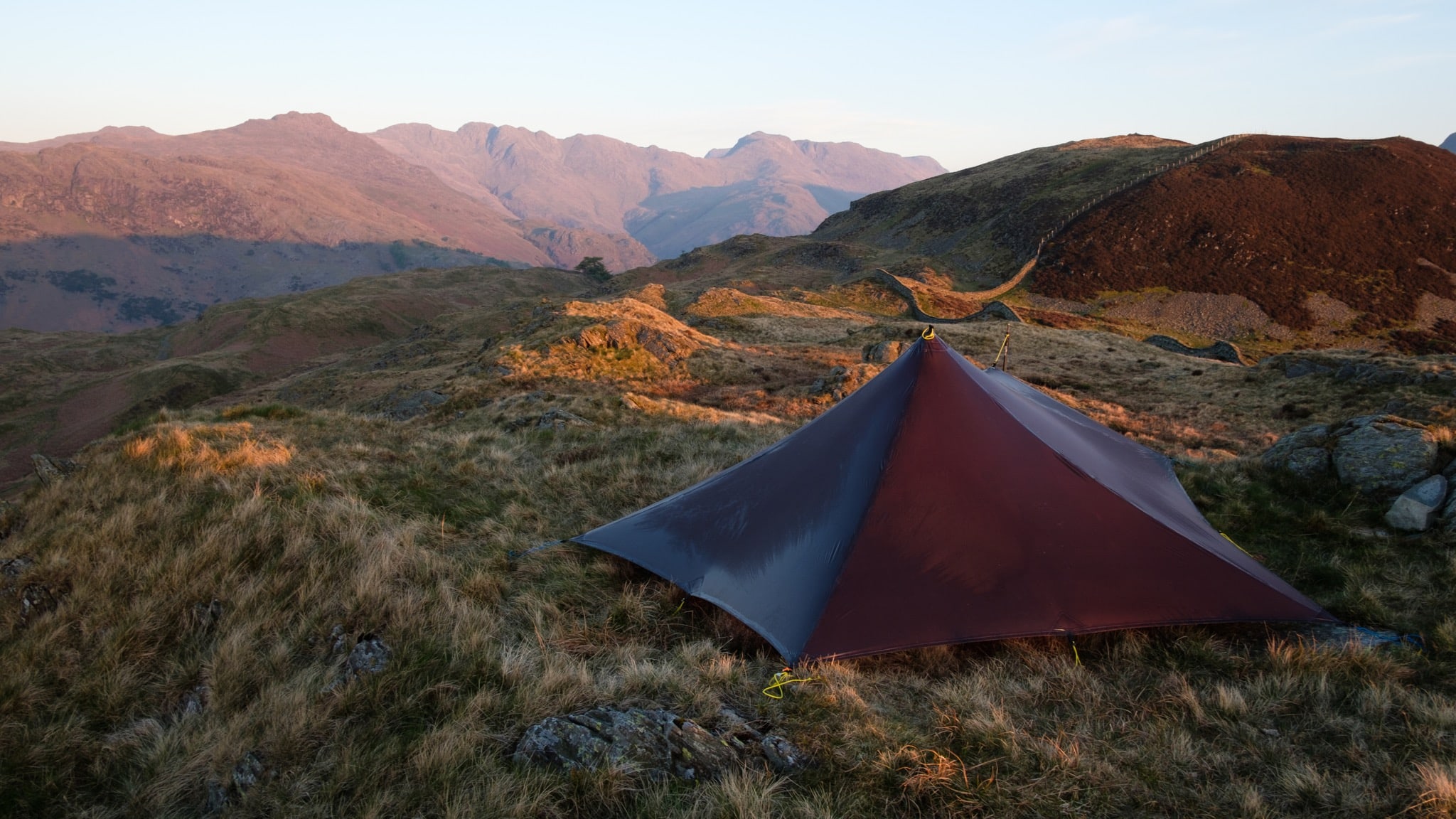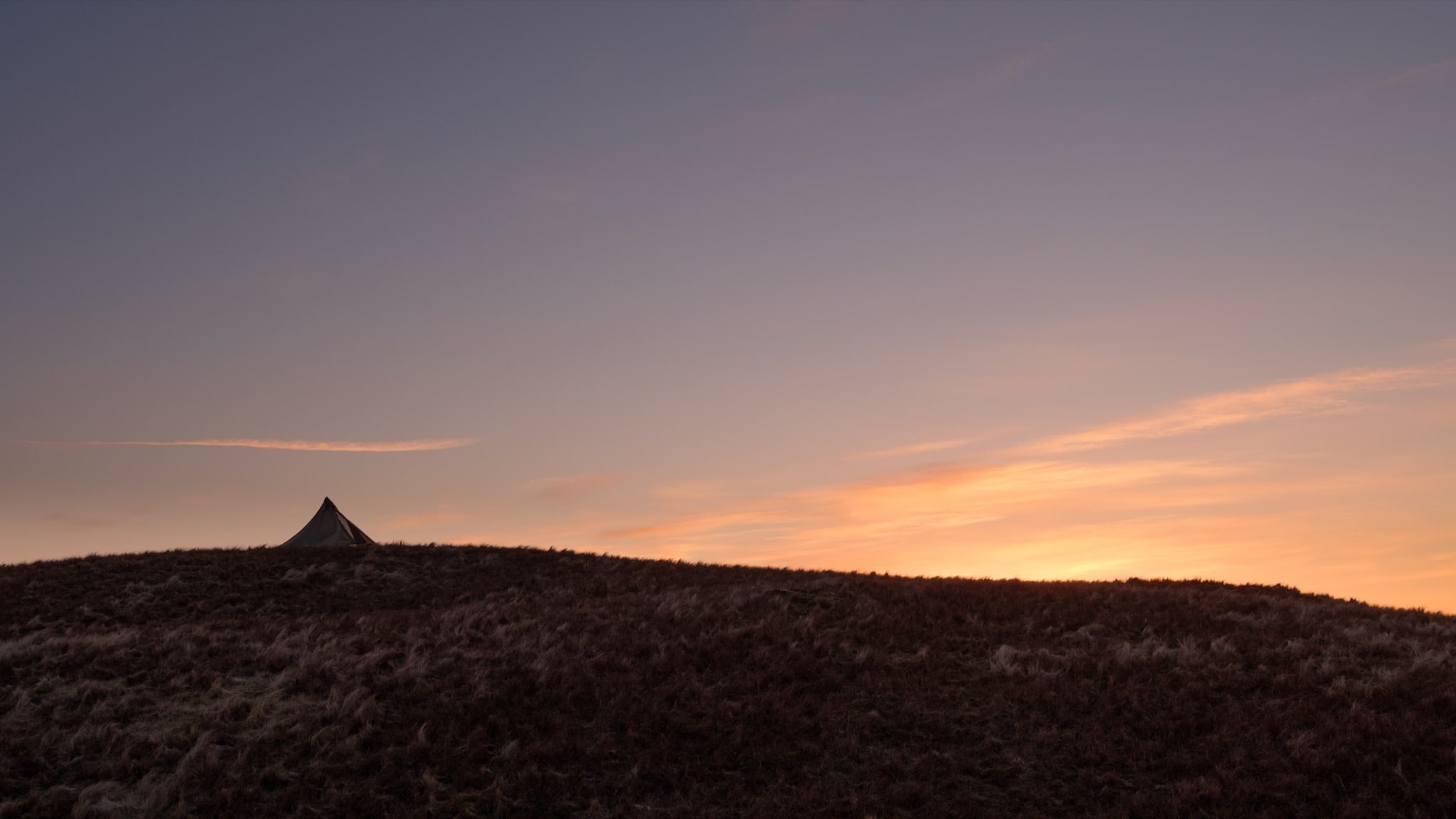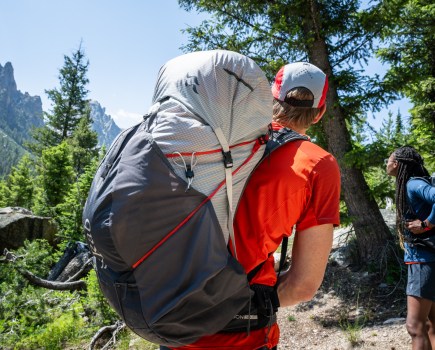UKWildCamp, which claims to be campaigning to change the law on wild camping in England and Wales, advertised a number of ‘wild camping’ pitches for upwards of £20 a night.
Update @ 3 June 13.55: In a statement, UKWildCamp have announced they are suspending the service.
Update @ 3 June 16.25: added statement by Richard Leafe, LDNPA Chief Executive.
Update @ 4 June 11.41: added statement by BMC.
By Alex Roddie
Late last week, several articles about the organisation UKWildCamp were shared by concerned wild-camping enthusiasts on social media. UKWildCamp, which is funded by DEFRA and claims to be working actively with the Lake District and South Downs National Parks, invites landowners to “upload suitable pitches” to their site, adding “every time someone stays on your land, you’ll profit from it”. They ask campers to “book pitches on our site, and enjoy the wilds without creating noise, mess or stress to landowners, or other users of the National Parks”.
Currently, a number of ‘wild’ camping sites are listed from £20 per night. These sites have no facilities whatsoever and are nothing like a pitch on a commercial campsite you might be used to paying for. Several of the listings encourage the use of open fires, but there is no guidance on how to deal with the lack of facilities beyond vague advice to treat the outdoors responsibly. Given that the likely customers of this pilot scheme will not be experienced wild campers, this prompts immediate questions about impact.
The website’s FAQs state that “we are working with landowners to open up unique and previously inaccessible sites for you to enjoy responsibly. Your money will go to help support the work of our National Parks and the people who work and manage the land, as well as ensuring the platform can host many more sites in the future.”
The pilot scheme is funded by DEFRA and is scheduled to run until September 2019. The landowner has been promised 50% of the fee, with 25% donated to the UK National Parks and the remaining 25% going to UKWildCamp.
Will Harris, the figure behind UKWildCamp and the author of a book called Rewilding the Humans – On Wild Camping, is a former Conservative Party marketing director whose LinkedIn profile states “I solve business problems”.
The response…
The Great Outdoors contacted the Lake District National Park Authority for a response. Richard Leafe, LDNPA Chief Executive, said:
“This project does not change in any way our advice on wild camping in the national park, for which there is a long tradition of tolerance. Advice on our website explains the basic code of conduct for wild camping; arrive late, leave early, leave no trace and pitch above the highest stone wall.
“We are collaborating with UKWildCamp.org to trial a wild camping experience on a limited number of sites in the Lake District, some of which are on land we own. It is expected that this approach will provide a ‘stepping stone’ to truly wild camping and may make it more accessible to a much wider audience.
“We support the organisation’s intention to offer a wild camping experience, and with the benefits of being closer to nature that brings, but with the engagement and consent of the landowner, including any consents that are necessary. In the Lake District we can offer planning advice to any interested land owners.”
Meanwhile, the South Downs National Park Authority made this response:
“We want to make clear this is a private pilot project completely separate to the South Downs National Park Authority. We were contacted and asked to identify potential sites where people could camp legally but there are no facilities. As the National Park Authority we are often contacted by private organisations looking to undertake activities in the National Park. We always seek to link these companies with the relevant landowners.
“We are also aware of the demand for camping opportunities in the National Park and particularly along the South Downs Way. Five potential sites along the South Downs Way were identified where the landowner might be minded to allow a small number of camping pitches with their permission. It is our understanding that the private organisation is now in discussions with the landowners, but no decisions have been made.”
…and the backlash
The backlash from the online outdoor community has been immediate and vocal, with universal condemnation of the scheme. At the time of writing, the UKWildCamp’s Twitter account @ukwildcamp_org, which has made only six tweets so far, has received hundreds of replies criticising the scheme – most in response to a tweet from May 31 depicting Will Harris presenting his plans to MPs, “wild camping enthusiasts and friends” at the House of Commons.
TGO’s Chris Townsend penned a blog post, ‘Wild camping by permission of the government?’, in which he wrote: “Calling this wild camping is a nonsense … As far as I’m aware no approach was made to the British Mountaineering Council or the Ramblers, the two representative bodies who could have given advice.”
After the scheme was suspended, the BMC issued a statement on their website in which they said, “In the BMC’s opinion, asking for payment in return for ‘exclusive rights’ to camp in a specified area is not wild camping. The BMC is disappointed not to have been consulted over the Defra backed pilot scheme or to have been included in discussions with the group responsible for the website as they developed their ideas and thinking.”
In her article for the Guardian about UKWildCamp, TGO contributor Phoebe Smith wrote, “let’s not say that making people pay for something they should be able to do for free is how we connect people to the outdoors. The benefits from wild camping are priceless and everyone should be able to experience the sensation of feeling on top of the world – without being charged for the privilege.”
Although it has yet to be firmly established if any hillwalkers’ organisations have been consulted on the scheme, Ramblers Cymru stated on Twitter, “we don’t agree with this and haven’t been consulted on it.”
Dave Mycroft of MyOutdoors, who has been actively pursuing this story over the weekend, wrote “Paying to camp in a location chosen by someone else for a period of their choosing is NOT wild camping. It’s paying for a campsite that has no facilities.”
Alex Roddie wrote on Twitter, “as wild campers, if we fail to behave impeccably and treat the landscape (and others) with the utmost respect, we will only harm our cause. Every wild camper in England and Wales is now an ambassador for genuine, responsible wild camping.”
The pilot scheme is cancelled
On 3 June, UKWildCamp made the following statement announcing their intention to suspend the service. We have published their statement in full:
“Thanks to all of you who have expressed a point of view about our wild camping pilot. It’s amazing to get such a deluge of comment and correspondence, from a wide range of opinions.
“We have had more than 3,000 expressions of support from landowners and would-be campers, wanting to try a night in the wild. We believe there is a real demand for a service like ours, and we’d still love to launch a scheme that brings more people into the wild, without disrupting those that are there already.
“The £20 fee (per pitch, not per person) was intended to incentivise landowners to participate. Part of what we were trying to establish in the pilot was the correct price, but wherever we ended up, half it would go to the owner of the land, 25% to the National Parks and the rest to run the platform.
“Set against that support, and as one of you put it, we seem to have inadvertently kicked over a hornet’s nest among the existing wild camping community.
“We’re wild campers too and thought the idea of campaigning to remove the current restrictions would be welcome. We also thought that running a booking scheme for entry-level wild campers, one that would provide them with the security and legitimacy that currently causes them concerns about camping wild, would be understood and welcome by the wider group. We now see this is not the case!
“With this is mind, we are going to suspend our service and have a re-think about how we might revise it. We won’t describe any future version of our service as “wild camping” because for many of you that specifically means free and unplanned camping. Nor are we likely to stray into a debate around relaxing the laws on wild camping, because we now understand this is a highly charged area.
“We’ll continue to respond to all who are in touch and, as we rethink our plans, we will be back in contact to consult about how this service might evolve in the future. It’s also worth reminding readers that this is a private initiative rather than one initiated by DEFRA or any of the National Parks. We approached them, and they were good enough to encourage us in our pilot. DEFRA also provided a small amount of seed funding. All complaints to us please, rather than them.
“Thanks for reading and please stay in touch.”
The truth about wild camping
Wild camping in the British mountains is one of the joys of the outdoor life. While the right to camp wild is enshrined in Scottish law (something UKWildCamp fails to acknowledge), in England and Wales the situation is more complex: wild camping is technically illegal, but widely tolerated if done responsibly. The Lake District National Park’s website even includes a section on enjoying wild camping, which states:
“Camping away from an organised campsite is called wild camping. Legally wherever you camp you must have the permission of a landowner to camp on their land, though there is a tradition of wild camping in the Lake District.”
The tradition of wild camping in the Lake District goes back decades, and is an integral part of Lakeland culture. Responsible wild campers leave no trace, pitch late and leave early, choose secluded and remote areas, and don’t camp wild in the same place for more than one night. Such behaviour has minimal impact on the environment. However, many outdoor enthusiasts would prefer laws similar to those in Scotland, and the conversation prompted by UKWildCamp has led many to ask for the outdoor community to campaign for a change in the law.
Our view is that paying £20+ to camp at a wild location with no facilities where you’d otherwise camp for free, at a time of your choosing and leaving no trace that you were ever there, has nothing to do with wild camping. We are investigating this pilot scheme to ascertain more facts. Look out for Roger Smith’s column on this story in our magazine soon.
All images © Alex Roddie










